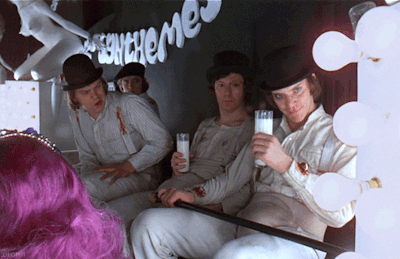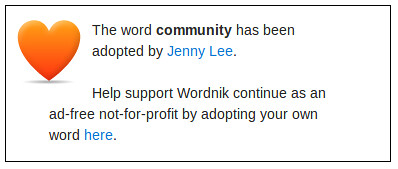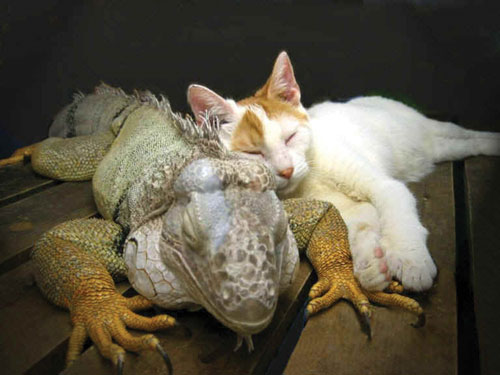
You might think of convenience stores as a 20th century phenomenon. After all, 7-Eleven, often touted as the “first ever” convenience store, opened in 1927. But the idea of a little shop where you can get some, if not all, of what you need is actually much older than that.
Location, location, location
The term corner shop first appeared in text around 1278, according to the Oxford English Dictionary (OED): “To Adam his son and Johanna his daughter a shop called ‘la Cornereschoppe.”
Corner shop is still used today in the UK while corner store seems to be used the south, west, and other parts of the U.S., as well as Canada, and is referred to as such regardless of location.
A dairy by any other name
In New Zealand, a dairy or dairy store sells more than milk, butter, and eggs. It sells other staples, newspapers, and more. So why is it called a dairy?
Back in the day, dairy farms delivered milk, eggs, and other perishables to homes. However, as early as the 13th century, says the OED, shops that sold milk, cream, etc. were sometimes called dairies.
New Zealand’s convenience stores aren’t the only ones that retain the legacy of the dairy farm. In Canada they’re referred to as milk stores, as well as, apparently, homo stores, named for homo or homogenized milk.
In Australia convenience stores are known as milk bars, although these may sell, in addition to sundries, fast food and “dairy based beverages” such as milkshakes.

A milk-bar cowboy, says the OED, is a derogatory New Zealand term from the 1950s referring to “a young man who, as part of a motorcycle gang, congregates in or around a milk-bar.” This term plays off drugstore cowboy, which originated in 1925 as “American English slang” for someone who loiters on sidewalks or at drugstores, or someone “who dresses or acts like a cowboy but has never been one.”
Party on
The term drugstore first appeared in 1771, according to the OED, and while they began as apothecaries and chemist shops, they’ve become a kind of combination pharmacy-convenience store.
Bodegas have more in common with drugstores than just convenience. This very New York term, which originally referred in Spanish to a wine shop or cellar, comes from the Greek apotheke, “depot, store,” which also gives us apothecary.
For liquor and crisps in the UK, you might go to an off-licence, or offy. The term off-licence originally referred to a license allowing the sale of alcohol for consumption off the premises, says the OED.
In Quebec, a convenience store that sells alcohol is known as a dépanneur, or dep for short, and translates from Canadian French as “one who gets you out of a jam.” Got a hankering for a Slim Jim and Jim Bean in Maine? Go to a package store, also known as a packie store (not to be confused with Paki shop, see below) a Northeast U.S. term for a convenience store that sells alcohol.
If you’re in the Midwest, visit a party store because of course buying alcohol means you’re having a party, or at least that’s our theory behind the term.
Variety is the spice of convenience store life
We’d argue that variety stores such as five-and-tens and dollar stores differ from convenience stores in that the focus is on low-price rather than convenience. However, there’s no doubt that diversity is a key convenience store component.
In the Philippines, convenience stores are known as sari-sari stores, in which sari-sari means, in Tagalog, “variety.” (Sari the dress, in case you were wondering, ultimately comes from the Sanskrit sati, “garment, petticoat.”). Meanwhile, in Australia, you can get “a wide variety of goods” at a mixed business, says the OED.
Say what?
Like homo store, there are some convenience store terms you might want to use sparingly, if at all.
Paki shop is an offensive term for a corner shop supposedly run by someone of Pakistan or South Asian descent. The word Paki itself is derogatory, referring to someone perceived to be from Pakistan or neighboring countries. The OED’s earliest citation for Paki shop is from 1983:
The ‘Paki-shop’—misnamed because most of them were owned, not by Pakistanis, but by Indians from East Africa—appeared to fulfill a vital service.
Arabe du coin, which translates as “Arabic corner,” is the French version of Paki shop, while chino, referring to a convenience store owned by someone of Chinese descent (again, perceived or otherwise), is still in use in Spain.
Some argue that one shouldn’t be offended by the term chino since offense is “not intended” (see accidental racism) while others say that in Spain racism is simply accepted.
How convenient
Now for the mother of all convenience store words: the term, convenience store. The phrase originated in the early 1960s, and around that time, several large chains opened including Becker’s in Toronto, Mac’s, also in Canada, Wawa in the Mid-Atlantic U.S., and Lawson in Japan.
Lawson? But that’s not a Japanese name. That’s because the popular convenience store, or konbini, began as Lawson’s Milk Company in Ohio. It became a chain of stores in the 1960s, and in the 1970s, was bought by Daiei, a large Japanese supermarket chain. Currently, there are over 11,000 Lawson stores in Japan.
Lawson isn’t the only American convenience store owned by a Japanese company. In 2005, 7-Eleven became a subsidiary of Seven & I Holdings Co., which formed was in the 1990s by Ito-Yakado, a general merchandise store.
7-Eleven wasn’t always called 7-Eleven, by the way. At first they were called Tote’m Stores, after the idea of customers “toting” away purchases. In 1946, the name was changed to 7-Eleven after its “new, extended hours” (also a catchy rhyme doesn’t hurt).
Other stores with names implying convenience are the ampm chain, Store 24 (acquired by Tedeschi Food Shops in 2002), and the Texas-based Stop N Go, which unfortunately gave rise to the term stop and rob, referring to how easily and often convenience stores are robbed. Now stop and rob refers to any convenience store.
A few additions
Thanks to commenter mcdevin for suggesting we add spa, which DARE defines as “Any of var usu small establishments where food and drink are sold; a restaurant, tavern, soda fountain, or, esp recently, convenience store” and marks as used in the Northeast, especially Massachusetts. (Other regional terms for ‘convenience store’ listed in DARE include pony keg [used in Cincinnati] and icehouse [chiefly used in Texas].)
(Special thanks to Will Fitzgerald, Jay Gatsby, Russell Horton, James D. Irwin, Chris Galvin Nguyen, Caitlin Olson, Joanna Schroeder, and other online friends.)
[Photo via Flickr, “E-Mart Convenience Store,” CC BY 2.0 by AJ Batac]
[Image via Tumblr, “Korova Milk Bar”]






